- Home
- Perrin Briar
Z-Minus (Book 6)
Z-Minus (Book 6) Read online
Get Perrin Briar’s Starter Library FOR FREE
Sign up for the no-spam newsletter and get BLOOD MEMORY, THE SWISS FAMILY ROBINZOM, SQUARE, and lots more exclusive content, all for free.
Details can be found at the end of Z-MINUS.
Z-MINUS VI
Perrin Briar
9:23pm
The figure stared into space, unblinking and glaring at something in the distance. He had a jutting brow that, along with the bright overhead lamplight, made his eyes dark shadowed pits. He had a comically large overbite, the kind that gave the wearer a constant look of confusion.
Dr. Joseph Scott scribbled on a piece of paper and looped it over the little figurine’s neck. He’d had this bubblehead designed to commemorate the discovery he’d made ten years ago in the Woranso-Millie area in Ethiopia. Dr. Scott and his team had discovered a whole new offshoot of man’s ancestry.
It was the ‘missing link’ the religious nuts had decried was missing from the fossil records. But there weren’t really any missing links. The record simply showed one slow evolution of a great ape species. There were no ‘links’ like in a chain, but a slow progression, the features morphing gradually over the course of millions of years, like a river flowing through rock.
Those were good times, times when Dr. Scott was at the top of his game, when the world waited with bated breath to see what his next big discovery was going to be. Dr. Scott had basked in the glow of achievement and attention that a new discovery merited. It wasn’t why he undertook such research, of course, but it was nice to receive the recognition.
He was rough and unkempt, and wore the same ragged cardigan as he had for the past twenty years. It wasn’t that he was poor – far from it – it was that he had no concern or care for such things. His was a life of study and introspection, of discovery. What he wore on his back would not be remembered, and so he never gave it a second thought.
Dr. Scott braced himself on the edge of his desk as a shiver ran through him. A cold sweat broke on his brow, pearls coalescing and rolling down his face. The shivers faded, as quickly as they had come, like a headache in reverse.
The doctor sucked air in though his teeth. Focus! he told himself. Focus! He needed to recall his memories, those parts that made him who he was. Those would be the last parts of him to disappear. His identity would be his last defense.
Jutting Jaw wasn’t the only onlooker. His brethren, spanning four decades of research and development and breakthroughs and discoveries stood peering down from their lofty perches. Now they were witnessing the end. The figures were unique, symbolic of each discovery Dr. Scott had made. One was a 3D-printed trilobite, a perfect replica in every way. Another was a pterodactyl carving, a woody reincarnation of the one he’d discovered deep in the white cliffs of Dover. Each told a story, a part of an extraordinary man’s life. They wore label necklaces of rough twine.
The closer you got to the end of your life, the more you reminisced about your origins. Such memories were passing through Dr. Scott’s mind, now he was flying so dangerously close to the very end. Bizarrely, it was the memory of his own father’s passing that dominated his final thoughts.
Dr. Scott had been fortunate to have been born into an affluent family – an extremely affluent family. He had attended all the best schools. He couldn’t claim to be an exceptional student, but he was a dutiful son. He was expected to follow in his father’s footsteps and take over the family business, a business that spanned the entire nation and dipped its tendrils into the international world as well. It was not so much a company as a dynasty. That was what the papers called the Scotts. A dynasty. Dr. Scott couldn’t say he ever liked the terminology. Dynasties ended. It was part of their lifecycle.
He’d always harbored a secret love for science, and when the day came when he had to choose what his major was going to be, he hesitated. He loved science. He did not love business. It was passion versus duty and he did not know what to do.
It riled him that he, of the Scotts and their incredible wealth, was unable to have the same freedoms the lower classes enjoyed. His life was to be one of duty, and he accepted that, but he could not accept applying it to all areas of his life.
Over the years he had seen his father’s true passion, his love for engineering, and though he could have taken the family business in that direction, it was new, and therefore a risk. When a company became a certain size it ceased taking risks, preferring instead to play it safe. It was the beginning of the end. There was also the board to bear in mind, which would not support him, and so his father had not pursued his interests.
But he could not disguise the light in his eyes every time he came across a new train design or a new article on the news about breakthroughs in feats of ingenious engineering. And then the look he gave afterward, arching his neck around, hoping no one had seen him divulge his secret passion.
He had to hide what he was, what made him feel alive. Dr. Scott found himself never wanting to be like that, like his father. He couldn’t. Dislike grew into hate. He vowed he would never become like him, and yet there he was, fumbling over which box to tick. Science or business. Passion or duty.
Dr. Scott had no doubt in his mind his father could have been an amazing engineer. He had all the required skills. Patience, tenacity. The drive to excel. With those skills he could have been great at anything. But he let family values and traditions shape him.
Well, the young Dr. Scott had no intention of following in his father’s disappointing footsteps. He was going to do what he wanted to do, he’d told himself. He was going to pursue his passion. To hell with the family.
He opted for business. What was most disappointing was he wasn’t even surprised by his decision. To select otherwise was unthinkable. It was the ultimate act of self-betrayal. Duty trumped passion.
His father had not had kids until late in life, and so he was old and decrepit by the time Dr. Scott was due to attend university. There’d been a knock at young Dr. Scott’s door and a somber servant had told him his father requested his presence. It could only mean one thing. His father was near to the end.
But Dr. Scott didn’t hurry. His upbringing wouldn’t allow it. He’d slowly stood, buttoned up his jacket, turned, and walked calmly toward the door.
He could recall the sight of his father in his bed to this very day. The bed wasn’t overly large, but it seemed to swamp him now that he was all skin and bone. His father had never been a large man, but there was a substance to him that everyone always commented on, as if he were cut from different cloth. No one said that anymore.
His father lay in bed, surrounded by the family lawyers and usual hangers-on. He signed something, his skeletal hand barely able to lift the pen, jittering and shaking. He left a long strained line across the page after his signature.
Embarrassed to be witnessing his father’s weakness, the hangers-on bowed and dismissed themselves, scuttling out of the room, eying the young Dr. Scott as they passed, no doubt hoping for a sign of early preferential treatment from the new king of the Scott empire.
The room, though cavernous, seemed very small and intimate then. Dr. Scott was alone with his father. He dreaded telling him what he really wanted to do, and decided against it. Why upset the old man on his deathbed? And that was when Dr. Scott knew he would never be able to disappoint his family. Duty was to be his life, as it had been his father’s.
But then his father surprised him.
“Come closer,” he said between gasping breaths. “Closer.”
The young Dr. Scott obliged.
“You love science,” his father said.
Young Dr. Scott gibbered, eyes wide. Had his secret been as easy to spot as his father’s?
“Don’t… Don’t deny it,” his f
ather said. “Especially to yourself.”
He coughed then, so hard and hacking that the young Dr. Scott thought he might not recover. But he did.
“Don’t waste your life doing something you don’t want to do,” his father said. “Do something you love. It will love you in return for a lifetime. Don’t live without love. Life is too long, and love too short-lived. Be the man you want to be, not what the family wants. I always wished I had been born in a later time, now, like you, but I know now that was never the problem. Great men and women are born at all times. You must have courage and do what you know you should. Be great.”
His father’s hand dropped. It was light and without power. His eyes rolled back, his head lolled to one side, and his body went slack. And that was it. One moment there was life in his eyes, the next they were empty. That was how fast life could move from one state to another.
“Father?” the young Dr. Scott had said. “Father?”
Dr. Scott had cried. He had not been close to his father, and doubted he would have been much upset if it hadn’t been for those final few words. They’d come from a man who regretted a great deal. Somehow they’d made up for all the times he hadn’t been present on birthdays and holidays, had made up for a fatherless childhood, because now Dr. Scott had his father’s permission to be and do whatever he wanted. He was free from bondage. Duty was now an excuse he could not call upon.
The rest of the family had been admitted into the room. They cried dutifully, gripping their father’s cold hands, burying their faces in the bedspread. They weren’t really upset, he was sure. The upper classes were all good actors.
The first thing Dr. Scott did was call his university and tell them he wanted to change his major to science. It was a problem, the school said, because all the classes were full. Dr. Scott used the family money by himself for the very first time that day. He told them to offer to any student currently enrolled on the biology course to change to business. In return, he would pay all their course fees, and guarantee a good job in the family business upon graduation.
He had a place on the biology course within an hour.
It turned out the boy he’d exchanged places with was a whizz with numbers. Dr. Scott found not only a new friend, but his future CEO. He was young and untested, but Dr. Scott could see the passion he felt for science reflected in the young man’s eyes for business.
The family business had never done so well. Why? Because Dr. Scott knew what the secret of good business was, just as he knew what the secret to good science was: passion. Not duty or obligation, but the unwavering pursuit of perfection.
True passion was a rare commodity, perhaps the rarest. And yet he met people every day with it, whether they were accountants, scientists, bankers, actors or singers. It didn’t matter what the field was. With enough passion and good luck, anyone had the potential to be and do anything. He firmly believed that, because it was what he had achieved.
Suddenly he was a man at school with no barriers and nothing to hold him back. He dated many women, knowing they would never be the ones he would get to marry. There were some family traditions that weren’t so easily broken, and he’d pushed his luck choosing an alternative major at university as it was.
Expectation. It was what stifled the dreams of many. Duty, its ugly twin. He was going to marry a woman as befitted his birth and blood. In the twentieth century, he was betrothed. But he didn’t really care. In his working life he was a superhero. It was the life he lived at home that was his boring secret identity.
He’d had two children – at his wife Margaret’s behest. It wasn’t that Dr. Scott didn’t want kids – he did – and it wasn’t that he didn’t like sex – he in fact loved it – but he didn’t want either of those things with his wife. She was not an attractive woman. Well-born and intelligent, yes, but not his type at all, and abysmal in the sack. He supposed it was partially his fault. If he didn’t educate her, no one would. But how could you educate someone you felt nothing for?
Dr. Scott was a sex maniac when he wasn’t working or studying. He loved nothing more than a good compatible woman to take out his needs and desires on. He’d found that many women liked to be ‘used’ in bed. They liked the hunger a man felt for them. It brought out the same carnal urges in them too, and that made for dynamic sex.
Dr. Scott was a man of simple pleasures, and once he was done with the woman, and she with him, she left. It was better for them both this way. He no longer needed her, and she no longer needed him. He could then get back to what was important to him: his work. But finding good women specific to his needs wasn’t easy.
He used to pay for sex, but there was something somehow unsatisfying knowing the woman may have had sex multiple times that day already, and her groans were prone to be mechanical and fake. He never knew if they were genuine or not, but the fact it was open-ended was something Dr. Scott loathed. He liked answers to be certain, and with these women, they were not. He believed in authenticity. And so, he attracted less-experienced women to him. He groomed them, tested them, to see how excited they felt at his touch.
He had not been faithful to Margaret. He’d have been surprised if she had been faithful to him. If she had, she was a fool. Love and sex were something to enjoy, as was discovery. He wouldn’t have given them up for anything. He was certain Margaret knew about his other women, but he didn’t care.
He hated returning home. It was like returning to the office after a long eventful holiday. The only person in his family worth speaking to was Susan, his daughter, who shared his interest in science. Most days he stared at the newspaper, going over all the memories he’d had on his most recent adventure.
And what adventures they were. He traveled the world making great discoveries. He was the envy of the science world. But now it was coming to an end.
He’d lived as his father had told him – a life full of passion and no wasted time. What a crime it was that so many people wasted so much time, wasted their lives, when every day should have been cherished, when every moment should have been lived to its extremes. But people did live to one extreme, he supposed. Extreme boredom.
It was what he did while excavating that really defined him. He’d lived enough for two lifetimes – one for himself, the other for his father. Any time he was afraid in his working life, he recalled the words of his father, and it was all he needed to pick up his courage and force himself to do whatever he was afraid of.
He’d gotten into a few close calls and scrapes, but that was what life was. If you weren’t within a breath of death at all times, how did you know you were still alive? That was where the most interesting parts of life resided; in those moments where life and death merged. That was where he resided, where he belonged. He’d gotten dengue fever in the Amazon jungle, had slid down the side of Everest due to altitude sickness. But he’d lived through it all. But stray too close to a razor’s edge and one day you’ll get cut.
Now he faced his most dangerous mission yet, and he was not going to survive it. Not a chance. In fact, he intended not to.
And that was what he clung to now, what his final memories were, of his sexual conquests, not his friends or family or regret over things he had or hadn’t done over the years. He’d almost died a dozen times, and now it was time to finally bite the bullet.
He’d had a good life. He’d done what he wanted to do, and achieved a great deal. Did he want to die now? Of course not. Only a fool would want that. There was still a great deal he wanted to achieve. This was the end, and it was fine with him.
Dr. Scott looked up at the awards and accolades he’d amassed over the course of a long career, a distinguished career. His was one they wrote about in all the textbooks, his name in italics, phrases he’d coined in capitals with references to his various articles in the appendixes.
He picked up an envelope from the tabletop and leaned it against the photos of the team members he’d worked with in the past. All with beaming, happy smiley faces. Each had gone on to
do their own groundbreaking research, most of it funded by Dr. Scott himself. Nothing bred success like success. And Dr. Scott liked nothing more than success being attributed to him. But this time success had bitten him and gotten its pound of flesh.
Dr. Scott looked out of his small window at the whiteness of the world outside. The Antarctic was a forbidding place, somewhere not everyone could cope with. It required someone of a hardy disposition, who could live without the conveniences of a modern life. But it also meant he could work as closely with the ice as was possible. It meant getting his hands on the ice blocks free of contamination, direct. It was a position many thousands of scientists wanted, but he alone had won.
He’d spent a great deal of time cooped up in his little room, bashing at the keyboard and writing journal entries and research results. His home and family were in New York, but this was where he really belonged. The people who came and went – who seemed to get younger every year – or perhaps it was just him getting older – were his friends, and those who he worked with most often became like family to him. Family he chose for himself.
He coughed, a wheezing thing that racked his whole body. Something splattered into his hand. He didn’t look at it. He knew what would be in his palm. He wiped his hand on a tissue, leaving a globule mass of red and thick yellow jelly. He didn’t need to be a world-class scientist to know that wasn’t healthy.
Dr. Scott gave his favorite figurines to his current team members. Kate. Daniel. Jeff. Lindsey. Ian. Patrick. Carl. He’d given a figurine to everyone he could recall. He had one left, his most recent addition. He paused before penning the name. He smiled through his shark-like teeth. ‘Dr. Hamish Foster’. He attached the tag.
He looked at each of them sporting their little collar labels. Matching uniforms, like gold medalists in the Olympics. So this is what a man’s life comes down to. A few childish toys. But given the chance, would he have changed anything about his career? No. His lifestyle and wealth afforded him the kind of life very few people could enjoy. And he did enjoy it. And he appreciated it. It made him sad it now had to end.

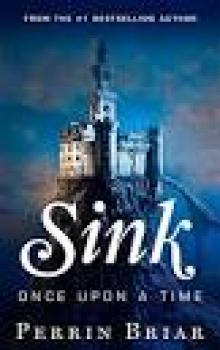 Sink: Once Upon A Time
Sink: Once Upon A Time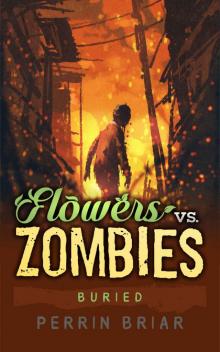 Flowers Vs. Zombies (Book 5) Buried
Flowers Vs. Zombies (Book 5) Buried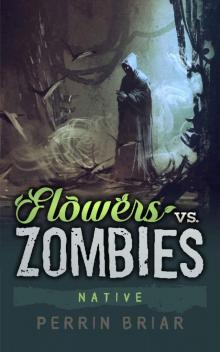 Flowers Vs. Zombies (Book 6) Native
Flowers Vs. Zombies (Book 6) Native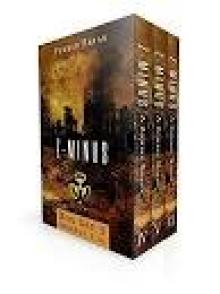 Z-Minus Box Set 2
Z-Minus Box Set 2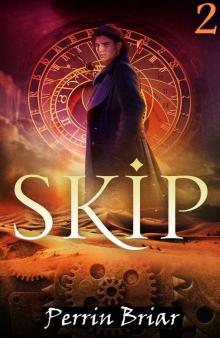 Skip: An Epic Science Fiction Fantasy Adventure Series (Book 2)
Skip: An Epic Science Fiction Fantasy Adventure Series (Book 2)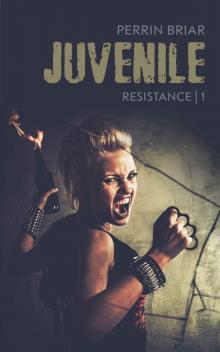 Resistance (Book 1): Juvenile
Resistance (Book 1): Juvenile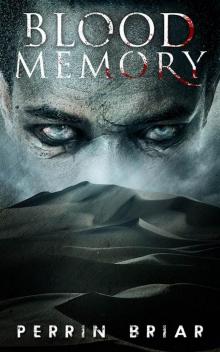 Blood Memory: A Post-Apocalypse Series (Book Five)
Blood Memory: A Post-Apocalypse Series (Book Five)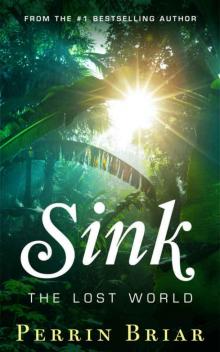 Sink: The Lost World
Sink: The Lost World![Z-Minus Box Set [Books 1-3] Read online](http://i1.bookreadfree.com/i1/03/30/z-minus_box_set_books_1-3_preview.jpg) Z-Minus Box Set [Books 1-3]
Z-Minus Box Set [Books 1-3]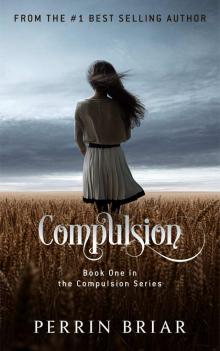 Compulsion
Compulsion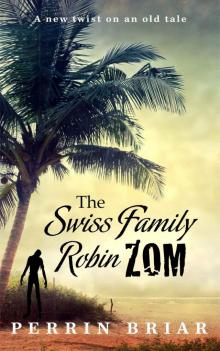 The Swiss Family RobinZOM (Book 3)
The Swiss Family RobinZOM (Book 3)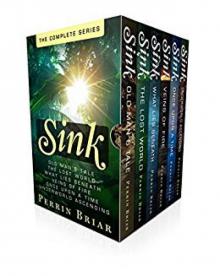 Sink: The Complete Series
Sink: The Complete Series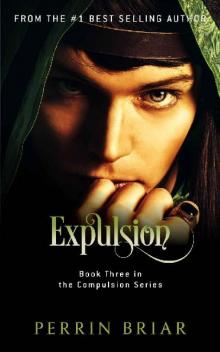 Expulsion
Expulsion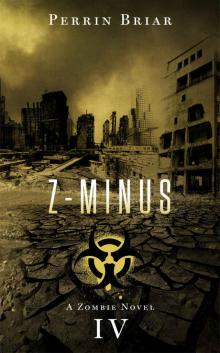 Z-Minus (Book 4)
Z-Minus (Book 4) Resistant Box Set
Resistant Box Set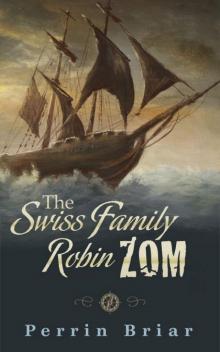 The Swiss Family RobinZOM (Book 2)
The Swiss Family RobinZOM (Book 2)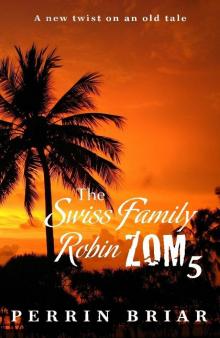 The Swiss Family RobinZOM (Book 5)
The Swiss Family RobinZOM (Book 5)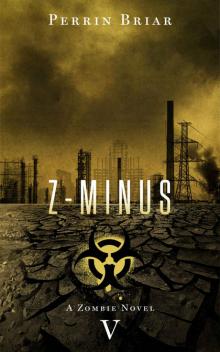 Z-Minus (Book 5)
Z-Minus (Book 5) Resistance (Book 2): Resistant
Resistance (Book 2): Resistant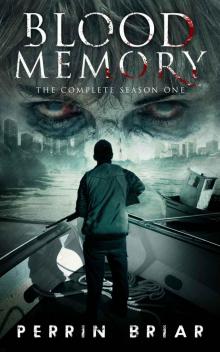 Blood Memory: The Complete Season One (Books 1-5)
Blood Memory: The Complete Season One (Books 1-5)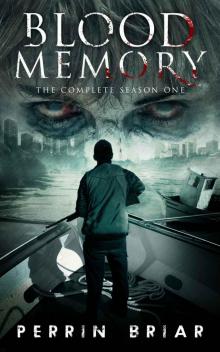 Blood Memory (Season 1): Books 1-5
Blood Memory (Season 1): Books 1-5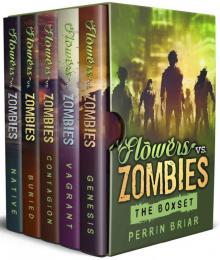 Flowers Vs. Zombies: The Complete Series
Flowers Vs. Zombies: The Complete Series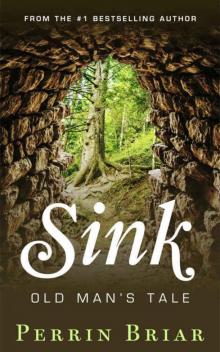 Sink: Old Man's Tale
Sink: Old Man's Tale![Cut Off [Part 1] Read online](http://i1.bookreadfree.com/i2/04/06/cut_off_part_1_preview.jpg) Cut Off [Part 1]
Cut Off [Part 1]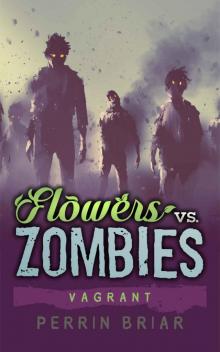 Flowers vs. Zombies (Book 2): Vagrant
Flowers vs. Zombies (Book 2): Vagrant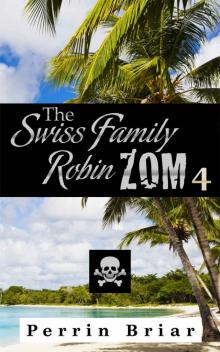 The Swiss Family RobinZOM (Book 4)
The Swiss Family RobinZOM (Book 4)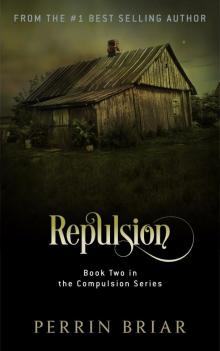 Repulsion (Compulsion Book 2)
Repulsion (Compulsion Book 2)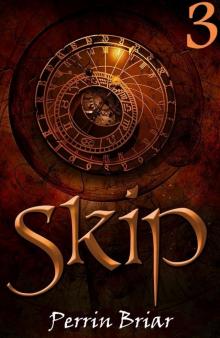 Skip: An Epic Science Fiction Fantasy Adventure Series (Book 3)
Skip: An Epic Science Fiction Fantasy Adventure Series (Book 3)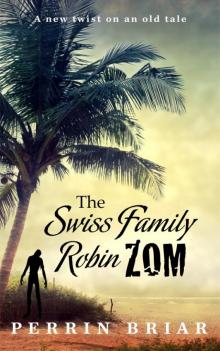 The Swiss Family RobinZOM
The Swiss Family RobinZOM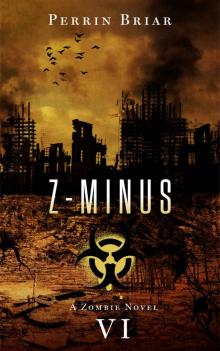 Z-Minus (Book 6)
Z-Minus (Book 6)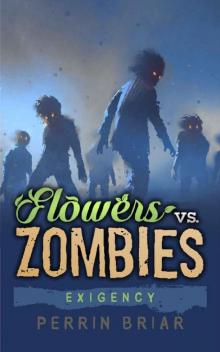 Flowers vs. Zombies (Book 4): Exigency
Flowers vs. Zombies (Book 4): Exigency![[An Epic Fantasy 01.0] Skip Read online](http://i1.bookreadfree.com/i2/04/12/an_epic_fantasy_01_0_skip_preview.jpg) [An Epic Fantasy 01.0] Skip
[An Epic Fantasy 01.0] Skip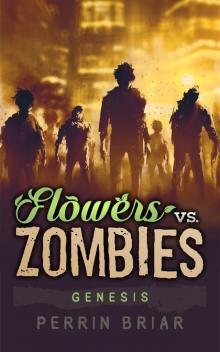 Flowers Vs. Zombies: Genesis
Flowers Vs. Zombies: Genesis